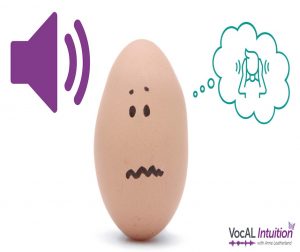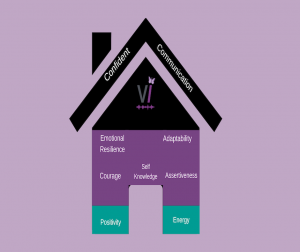Do you ever feel like the negative thoughts that swirl around inside your head are holding you back from achieving success with your voice? Well, it might not just be in your mind – science is showing us that our ingrained thinking patterns can greatly impact how successful we become. Our brains are far more malleable and adaptive than we initially thought; this phenomenon is called neuroplasticity and understanding it can truly revolutionise the way you can work towards your goals. In this blog post, I’m going to explain what neuroplasticity is and why it’s so helpful for creating those positive changes. Keep reading to find out more.
Please note that if you have problems related to anxiety that are severe or significantly affecting your quality of life you must see a medical professional for advice. I am writing here from a general coaching perspective.
Neuroplasticity
Neuroplasticity may sound like a daunting term, but it simply means that your brain can change and adapt. The experiences and memories you have throughout your life can actually affect the structure and function of your brain. That’s right, your brain physically changes based on what you do and experience! But don’t worry, it’s actually a good thing – thinking differently and practising new skills can also build new neural pathways in your brain. This happens when you learn.
Human voice use is unique
It is fascinating to think about how humans are uniquely able to speak and sing. Our voice use is complex and uses various motor processes – movements we can learn and eventually just do. The way we communicate can range from primal to highly evolved, reflecting the diversity of human experiences. Although speaking and singing overlap in their use of language, they use different parts of the brain for processing. Regardless of which method you use, both require coordination to achieve your desired outcome. It’s amazing to consider how human vocal abilities have played a significant role in shaping our expression and culture throughout history.
Changing what you do
Change can be a daunting experience for many of us. It is human nature to get comfortable with what you know and resist stepping out of your comfort zone. Sometimes though, change is necessary for growth and learning new things. Whether it is singing a new song, trying out a different accent, or improving the clarity and pace of your speech, your brain may perceive it to be unnatural or even wrong. However, you can build new nerve pathways necessary to adapt to change with practice. The key is to take small steps and repeat the right ones! With dedication and persistence, you can build the vocal skills you need. Neuroplasticity makes that possible.
What about “stage fright”?
It’s a common feeling to experience nerves when you’re speaking or singing in front of others. The fluttering heart, sweaty palms, and jumbled thoughts are all part of the adrenalin rush we feel when we’re under pressure. However, when these nerves get out of hand, they can lead us into fight or flight mode which can affect our motor processes and wreak havoc on our performance. NB: performance anxiety is a severe form of this that needs to be diagnosed by a medical professional.
To help ease everyday nerves, try focusing on positive imagery and forward pacing. By visualising success and looking beyond the event, you can shift your mental energy away from the pressure of the moment and perform with greater ease and confidence. With practice your brain can learn that using your voice in front of others can be safe.

Change your brain
Do you ever find yourself saying things like “I can’t”, “that’s just how my voice is”, or “I sound awful”? If so, it’s time to change that negative self-talk. Start by asking yourself “How would I do it if I could?” rather than just saying “I can’t”. Then, make a habit of affirming yourself daily with positive statements. Your brain is listening and will begin to believe what you tell it. So, why not tell it useful things? With practice, you’ll be amazed at the transformation in your self-confidence and overall outlook on life.
In Conclusion
Neuroplasticity is an incredible gift and one you can take advantage of. Understanding that your reality and life can change in accordance with what you fill your mind with is a beautiful thing. It brings comfort to know that the thoughts and belief systems passed down to you – such as negative self-talk, judgement, and low self-esteem – no longer need to determine who you are today. You have the power to create a new narrative filled with positive affirmations. With neuroplasticity on your side, you can generate a powerful voice, full of confidence and courage.
If you’d like to discuss any of these ideas further why not book a free Discovery Call? You can also join my mailing list for free tips, resources, and occasional news of special offers. No spam, just useful stuff.




